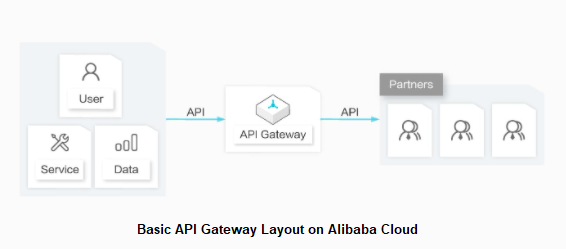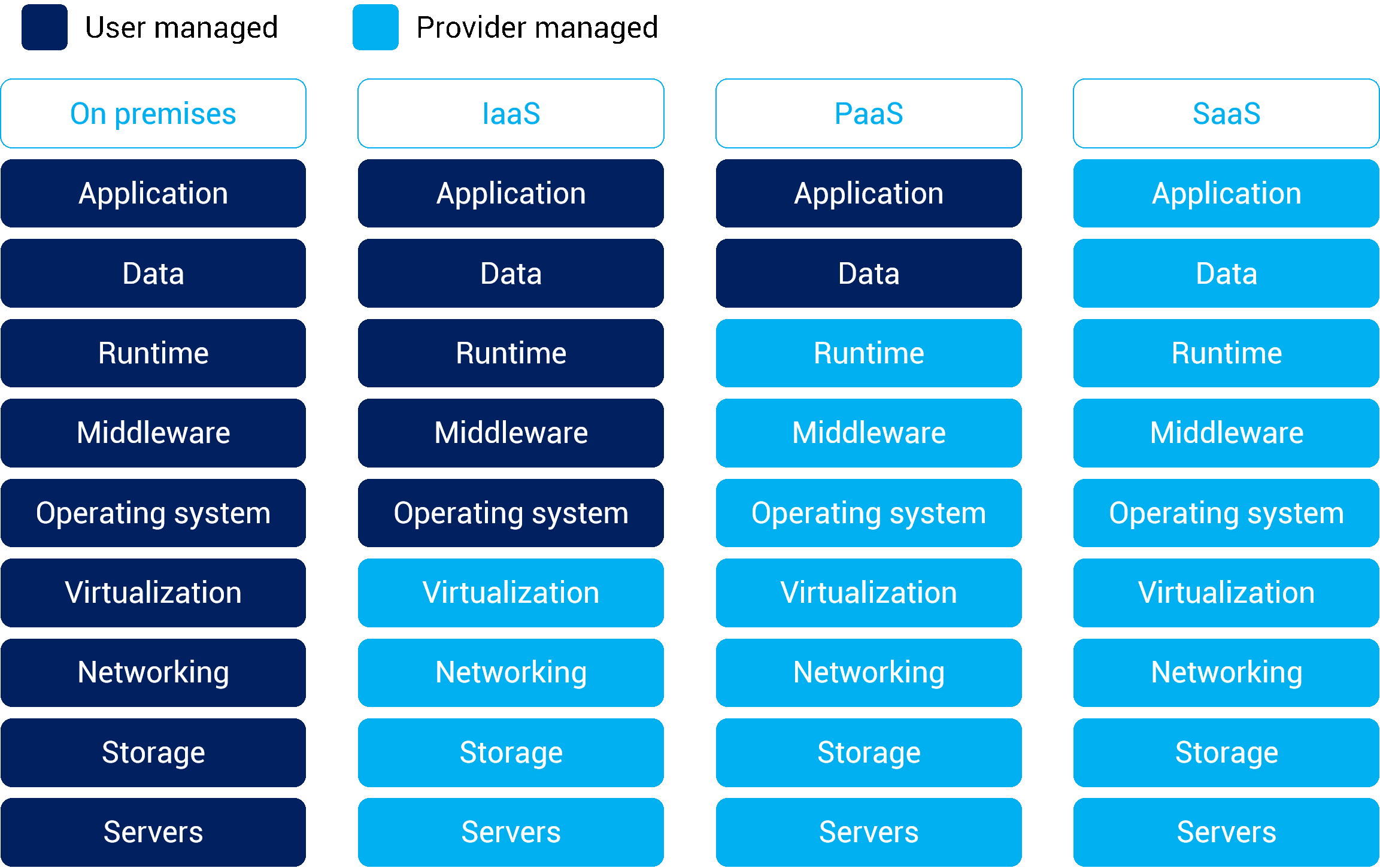By Shantanu Kaushik
Cloud Architecture has evolved considerably during the past few years and this process has accelerated more after agile practices came into play. DevOps has taken the whole scenario to a greater level. It mostly depends on how efficient your practice is and how up-to-date your implementation is. When we talk about the cloud, we cannot rule out talking about Alibaba Cloud as a service provider. In this article series about API Gateway, we will be talking about APIs on the cloud and will reference multiple products by Alibaba Cloud. Some of these products are:
The Application Programming Interface (API) is among the most important bits of the cloud computing architecture. These microservices or software are responsible for many cloud related services to function properly, including communication, automation, storage, delivery, management, and other elements.
APIs are responsible for the functioning of numerous modules that developers need. The level of customization and interoperability is only achieved by using APIs. These small and highly efficient programs are responsible for the bigger cycle of events on the cloud and are considered to be the glue that holds everything together.
Cloud infrastructure mainly depends on efficiency and strategy. If you can maintain your system with the correct tools and use automation wherever required, it can count for a near perfect strategy. When implementing a DevOps practice, you need to think of the size and how scalable you want your system to be. As a developer, your organization depends on your efficiency, and using a well-formulated and precise API strategy can be the difference between good and excellent cloud architecture.
This is why I chose Alibaba Cloud as my API Gateway and cloud service provider. APIs can be the deciding factor when you think of a multi-point architecture that collaborates between different resources and tools. With provisions, additional ECS instances, or deploying an application using a Web App service, APIs will come into play with almost everything.
Let's take a look at how the API Gateway works:

A modern-day developer needs modern-day tools and services for an optimized and break-free operations practice. Even the most sophisticated development tools and implementation scenarios are prone to failure when you compromise with the end-solutions.
High levels of customization are an essential requirement in today's cloud practices. With DevOps in the mix, these practices are accelerated further. These call in for direct-use scenarios and make APIs a well-to-do mechanism. API Integration practices enhance the overall cloud performance and also calls in for better compatibility among peers.
In this regard, API Gateway comes into play. For a service provider like Alibaba Cloud, making sure that your cloud implementation is well synchronized with multiple APIs that you might use for your cloud practice is the most important bit. As APIs are responsible for most of the integration scenarios and provisioning resources, like hardware and software, maintaining a certain level of interoperability is of utter significance.
Data Management is another key practice when it comes to handling data; Big Data and the data management practice on any system that is working for efficiency and availability. APIs are responsible for a rich feature set for the cloud and are also responsible for a better performing platform. Data and Storage Service will always have high-availability demand sets. Scaling your resources and balancing server loads automatically has to be facilitated in the mix of things. That is why choosing a correct cloud service provider is the first task-at-hand for a cloud strategistdeveloperadministrator.
Maintaining a synchronized relationship between your business and the technological side of it is as important as any other task for the system administrator. For a developer, selecting the type of integration scenario and service is the most important task.
You might think of using Platform as a Service (PaaS), Software as a Service (SaaS), or Infrastructure as a Service (IaaS). You have to think about which applications or software modules will be used and which managed systems you need for your organization in the long run.
Below is a classification with Alibaba Cloud as your service provider:

After Digital Transformation practices begun and started to pick up the pace, many businesses and organizations have started to make the call to transform. This move to the cloud is a challenge for businesses or organizations using the legacy systems for their everyday needs. Making this transition is where APIs can help the developer and the business.
Making a transition is not easy, but if you decide to do it, you will need an efficient API Gateway that makes it simple to build an API centric architecture. Alibaba Cloud API Gateway is what you need. It provides superb lifecycle management functionality and lets you work as a developer with the API design. It takes care of the development phase, the publishing phase, and the aftermath. This aftermath may include O&M, monitoring, security, sales, and unpublishing.
When migrating your business and adopting the current practices and standards, interoperability plays a significant role. Interoperability is a practice that involves multiple services from different providers coming together for better and more efficient practice for any organization.
One provider cannot provide every service that users are looking for. To overcome this, Alibaba Cloud introduced its Hybrid Cloud solution that counts for interoperability and a tight requirement for reliability. Hybrid Cloud architecture sits between public and private cloud deployment and overcomes the limitations of both public and private cloud. The Hybrid Cloud solution takes advantage of both traditional and cloud practices to churn out a solution most suited for organizations looking to make the shift.
Every provider has a certain set of basic tools that they offer. API Gateway lets you write an API, test it, publish it, and monitor it. With this in mind, developers can write APIs that only need to be written once but can be used with multiple providers without re-imagining the whole thing. This helps with higher productivity and re-usability with solutions.
APIs are one of the smallest components in cloud architecture. These microservices form the biggest and most critical solutions for any organization when working with the cloud or making a transition to the cloud. Choosing a good cloud provider is the most important task, as that will determine the scalability of your solution. Concepts that now are full-fledged technological marvels, like DevOps and Hybrid Cloud, have fast-tracked the technological paradigm shift and have made way for businesses and organizations to flourish by leveraging some of the most sophisticated tools in today's Cloud-Verse.
1. API Gateway – An Introduction
We will give a detailed explanation of how the API gateway works and what modelled scenarios can be used to better leverage this solution.
2. Hybrid Cloud – A Total Solution
We will discuss the various challenges and how Hybrid Cloud is a solution that entails different scenarios for different businesses.
The views expressed herein are for reference only and don't necessarily represent the official views of Alibaba Cloud.
API Gateway: Use-Case Scenarios & Industry Specific Modeling

2,593 posts | 791 followers
FollowRupal_Click2Cloud - November 15, 2023
Alibaba Clouder - February 9, 2021
Alibaba Clouder - March 8, 2017
Alibaba Clouder - December 26, 2016
Hanks - April 21, 2020
OpenAnolis - May 10, 2023

2,593 posts | 791 followers
Follow Hybrid Cloud Solution
Hybrid Cloud Solution
Highly reliable and secure deployment solutions for enterprises to fully experience the unique benefits of the hybrid cloud
Learn More Alibaba Cloud Flow
Alibaba Cloud Flow
An enterprise-level continuous delivery tool.
Learn More DevOps Solution
DevOps Solution
Accelerate software development and delivery by integrating DevOps with the cloud
Learn More API Gateway
API Gateway
API Gateway provides you with high-performance and high-availability API hosting services to deploy and release your APIs on Alibaba Cloud products.
Learn MoreMore Posts by Alibaba Clouder